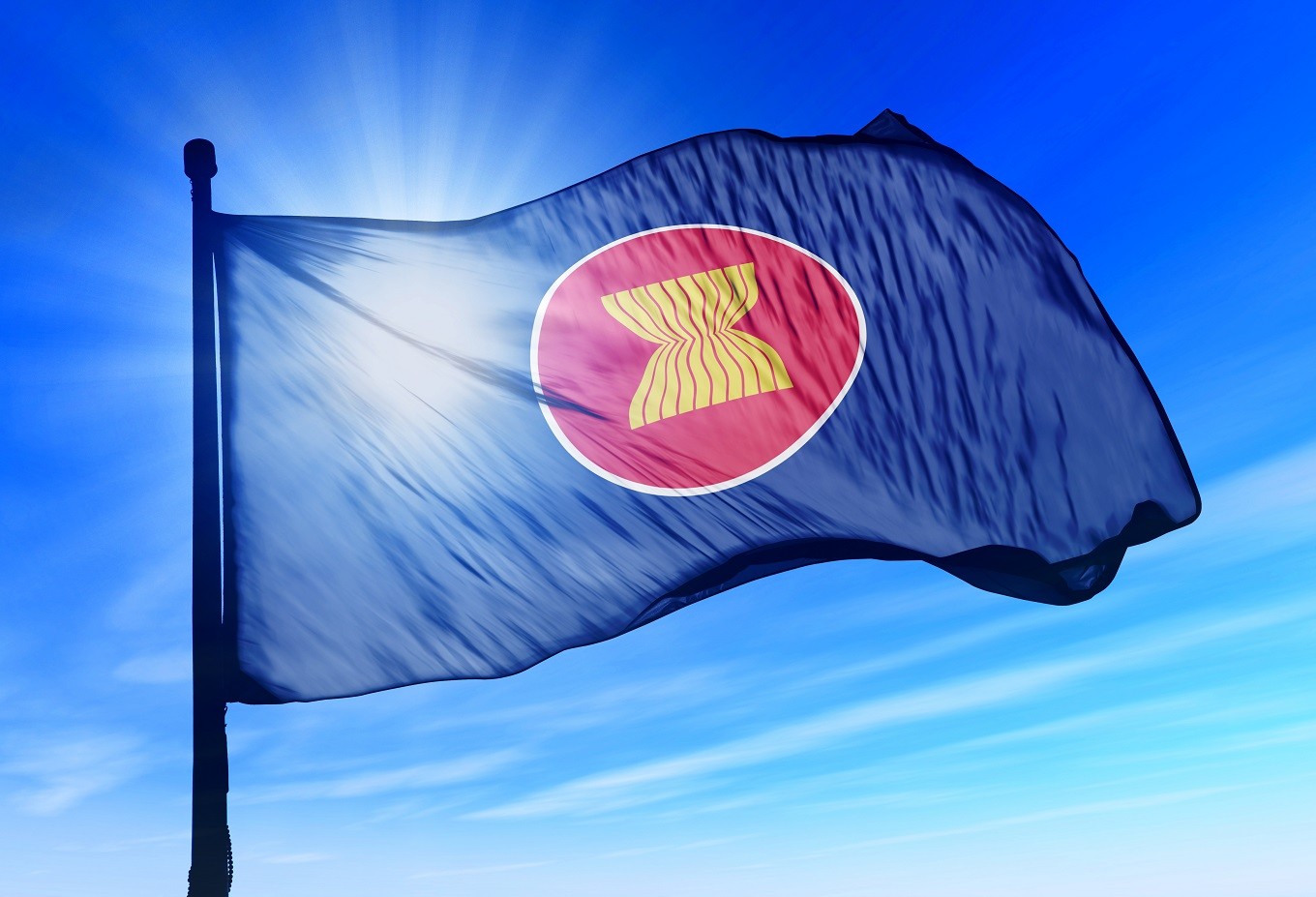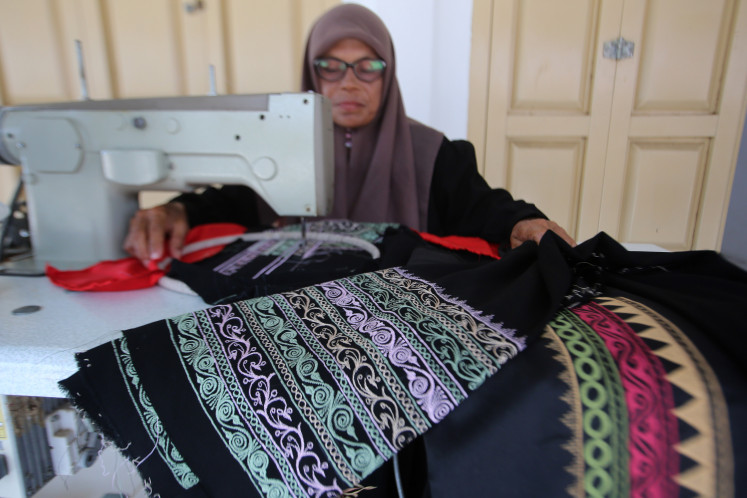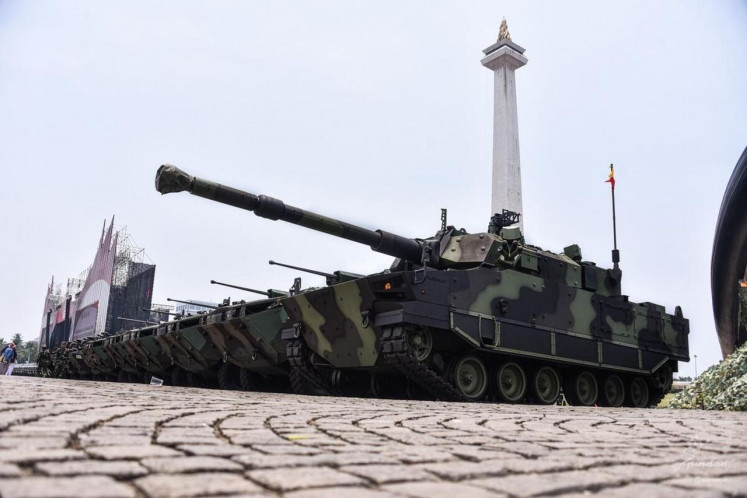Popular Reads
Top Results
Can't find what you're looking for?
View all search resultsPopular Reads
Top Results
Can't find what you're looking for?
View all search resultsIs consensus equal to unanimity?
While consensus can be the bond of ASEAN, consensus can also be David’s pebble to defeat the almighty Goliath. That same pebble can be equally utilized by all concerned parties to set the tone of ASEAN consultations and negotiations. Does consensus mean unanimity, a condition in which all member states have to agree on any given formulation?
Change text size
Gift Premium Articles
to Anyone
D
iplomacy is the art of many possibilities in which people are only limited by their own imagination and creativity. Possessing such artisanal skills is the hallmark of statespersons who can transcend barriers and differences.
Statespersons with a high level of energy and determination seldom succumb to prevailing circumstances. Even if they do, they only emerge more energized and more determined to find and forge innovative solutions that will have wider appeal and support. That the ASEAN diplomats with all their tenacity in Vientiane did not succeed in mentioning the PCA ruling in their final communique raises fundamental questions about the notion of consensus.
Article 20 of the ASEAN Charter denotes that decision-making processes shall be based on consultation and consensus. Consensus requires all ASEAN member countries to agree on any given formulation.
That said, diplomats are exerting extra effort to accommodate views and concerns from each and every member state. Such a painstaking process is the bread and butter of any diplomat, although to the eyes of a layperson it might look cumbersome and possibly futile.
Consensus and consultation are the glue of ASEAN. Each and every state has a say in the decision-making process irrespective of its size, importance, and degree of interest in the issue at hand.
The hours of consultation and negotiation to arrive at consensus allow member states to assess the core and vital interests of each state in an in-depth manner. Each state airs its own interpretation of a given issue based on its own complex interests. This process allows diplomats to develop a more nuanced view of the issue at hand, giving them the ability and agility to maneuver in the dark and misty alley of diplomacy.
While consensus can be the bond of ASEAN, consensus can also be David’s pebble to defeat the almighty Goliath. That same pebble can be equally utilized by all concerned parties to set the tone of ASEAN consultations and negotiations. Does consensus mean unanimity, a condition in which all member states have to agree on any given formulation?
Consensus simply falls short of unanimity.
Consensus is a way to forge common views but it stops at allowing each and every state to bar or let alone block an emerging consensus. Consensus is by no means giving states the right to veto. Consensus gives the right to air one’s grievances and seek solace from other member states.
Turning consensus into a veto right has deep implications and serious repercussions for the stature of ASEAN. The ASEAN spirit of solidarity by no means provides carte blanche for a given country to prevent the region from addressing impending issues. Overlapping claims in the South China Sea are a serious issue that begets serious consideration and less a place for jockeying one position against another.
Consensus means that most countries can live with any given formulation. It does not mean that all countries are comfortable with the results. They just happen to be realistic enough to accept an agreement that can move the discussion forward. The result in Vientiane might be the most suitable solution at present.
ASEAN diplomats have to come together to define what it means to make decisions by consensus — a process that falls short of unanimity. Indonesia can take a leading role in sharpening the meaning of consensus in substantive and procedural terms. It will take determination, creativity and innovation to define it and put it in the proper context.
ASEAN diplomats could learn from former Peruvian president Alberto Fujimori and former Ecuadorian president Jamil Mahuad, who took initiatives to solve territorial disputes between the two countries in the late 1990s. Their claims were larger than the size of France. Both were determinate, creative and innovative in the way that they transcended the prevailing circumstances and forged a peace deal that gave both countries the opportunity to redirect their energy and efforts on fundamental issues.
Disputes come and go in any given regional and international context. ASEAN’s spirit of solidarity and cordiality should not be mistaken as shying away from incoming thunderstorms. It is now incumbent upon Indonesia to take a lead and refine the notion of consensus.
***
The writer is serving in the Indonesian Foreign Ministry. This is a personal view.
---------------
We are looking for information, opinions, and in-depth analysis from experts or scholars in a variety of fields. We choose articles based on facts or opinions about general news, as well as quality analysis and commentary about Indonesia or international events. Send your piece to community@jakpost.com.










